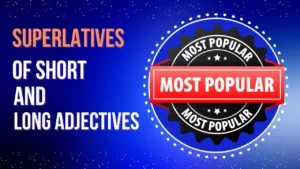
Introduction to the future continuous tense
The future continuous is one of the important tenses in English which is used to talk about some particular, continuous actions in the future time.
In this lesson, you will learn how to form the future continuous, its function, and the keywords used with it.
FORM | Rule: Subject + will be + verb-ing Affirmative/positive: I/You/he/ she/ it/we /they/ will be doing/having Negative: I/You /he/ she/ it/we/ they will not be doing/having Interrogative: Will I/you/he/she/it/we/they be doing/having? |
| USE/FUNCTION | The future continuous/progressive tense is used with actions that, at a particular point of time in the future, will be still going on. I.e, it is used with actions that start before a point of time in the future and continue after it. It is also used with planned future events. |
| EXAMPLE | – In July 2022, we will be having the end-of-the-year holidays. -I think next Thursday you will be celebrating your 46 birthday. – Believe it or not, next year I will be working as the headmaster of our school. |
SIGNAL WORDS | – next…. – on+day of the week – at+hour – In+month/ year/season – tomorrow |
Practice exercise
Choose the correct answer, a, b, or c, using the future continuous tense
1. At this time tomorrow, I …………………………….
- a. will leave
- will have left
- will be leaving
2. The baby ………………………………… soon.
- a. will walk
- b. will be walking
- c. will have walked
3. What ……………………………………. this evening?
- a. will you do
- b. will you have done
- c. will you be doing
4. Summer term ……………………………….. on 20th.
- a. will start
- b. will have started
- c. will be starting
5. She …………………………………. with us.
- a. will come
- b. will be coming
- c. will have come
6. The plane ……………………………………. at 3 o’clock.
- a. will leave
- b. will be leaving
- c. will have left
7. I …………………………………… of you.
- a. will think
- b. will have thought
- c. will be thinking
8. He …………………………………….. the conference.
- a. will attend
- b. will have attended
- c. will be attending
Answers
- At this time tomorrow, I will be leaving.
- The baby will be walking soon.
- What will you be doing this evening?
- This Summer term will be starting on the 20th.
- She will be coming with us.
- The plane will be leaving at 3 o’clock.
- I will be thinking of you.
- He will be attending the conference.






